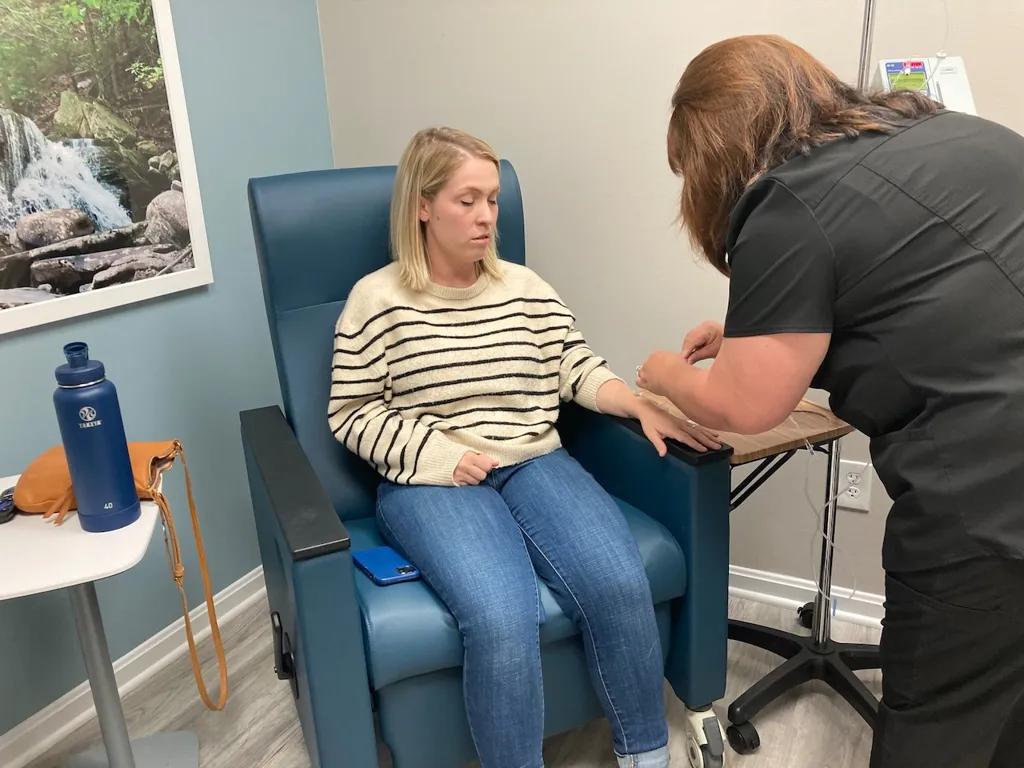CLEVELAND, Ohio -- Before her pregnancy, Katherine Hegedorn of Parma was a healthy marathon runner. But during her recent pregnancy, she developed gestational diabetes, or high blood sugar, which can affect the health of mom and baby.
Tests showed that she could go on to develop Type 1 diabetes after giving birth. By the time her newborn daughter reached first grade, Hegedorn, 30, could experience heart disease, nerve and kidney damage or other complications from diabetes.
University Hospitals offered a better future.
In October Hegedorn was the first patient in Northeast Ohio to receive the first FDA-approved drug, Tzield (pronounced TEE-zeeld), that can delay the onset of Type 1 diabetes and the need for insulin for up to three years.
"It's always better to delay, if possible, something that you know can damage the body," Hatipoglu said.
Tzield intervenes to stop the immune system from attacking insulin-producing cells, allowing the body to make insulin normally. Delaying the onset of Type 1 diabetes is important because the disease often appears in young patients who struggle to manage their condition.
Tzield is offered to patients who have abnormal glucose levels. People who should be screened include those with a close family member who has Type 1 diabetes or who have a personal or family history of certain autoimmune diseases.
"I was in a rare state -- before I needed insulin and before they would normally catch it," Hegedorn said. "They were able to do something about it now."
"My little sister knew a lot about it because of her background (as a diabetes educator)," Hegedorn said. "I don't mind doing new things. I like to be very proactive with my health."
Diabetes Statistics
Diabetes affects millions of Americans and continues growing. In 2021, more than 38 million people had diabetes according to federal data. Type 1 commonly starts in children but can start at any age; Type 2 is more prevalent among people over 40 due largely to lifestyle factors like obesity and sedentary habits.
Treatment Challenges
"Tzield doesn't cure Type 1 diabetes because suppressing the immune system can lead to severe infections and cancers," Hatipoglu said. "That is the problem we are currently having."
